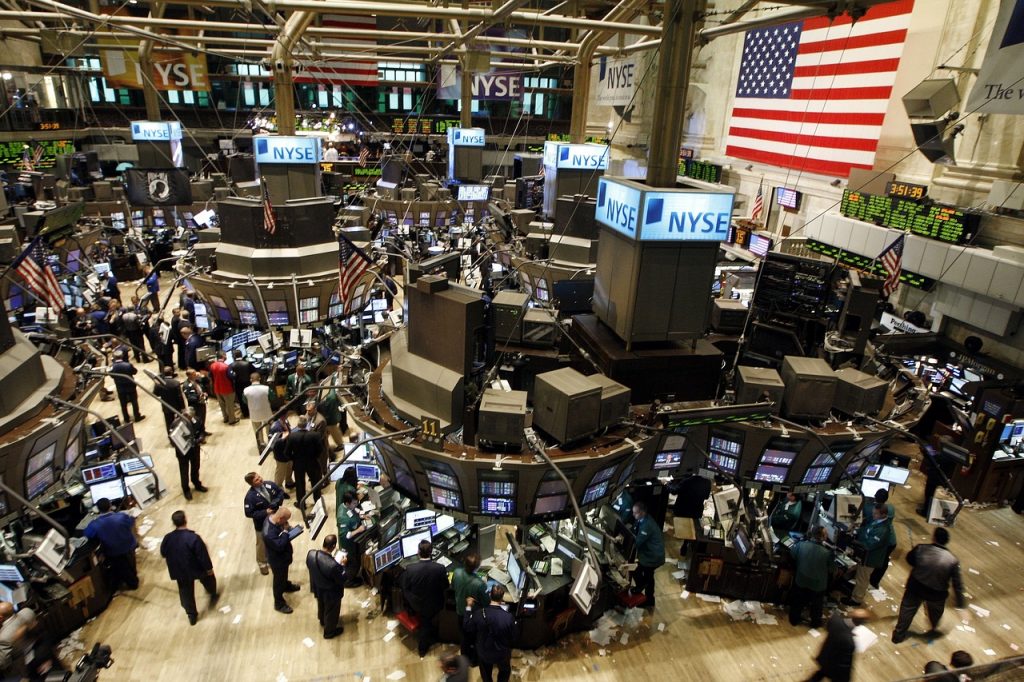Capitalism, despite the words of its best running dogs, does not provide the grounds for common prosperity because it is a class-based system. The capitalist class often secures the future of its own through speculation on the stock market. The buying and selling of stocks and shares are what Marx described as ‘fictitious capital’. After all, the trading of shares does not represent an exchange of commodities- an actual thing one can use.
Rather, shares are an entitlement to future value. Many, if not most capitalists won their fortune through this method. Thus, completely bypassing their own ‘magnetic’ capabilities as individuals- rather they are pawns of ‘fate’. This method is almost universal today due to the ‘shrinking’ of markets. This occurs as a general tendency of capitalism because the technical advances in production from the industrial revolution onwards ensured growing capital intensification. This in turn forces down the rate of profit. Marx demonstrates this through his analysis of commodities and labour.
Marx’s analysis states that the value of a commodity is the amount of labour that is necessary to produce that commodity. Marx argued that technological innovation enabled more efficient means of production – essentially a way to improve labour. Temporarily, this creates greater physical productivity, therefore allowing The first capitalist to use this technique to produce greater use values (physical output in this example). However, in the long run, if demand remains the same and the more productive methods are adopted across the entire economy, the amount of labour required (as a ratio to capital, i.e. the organic composition of capital) would decrease.
As Marx demonstrated, value is tied to the amount of labour necessary, the value of the physical output would decrease relative to the value of production capital invested. In response, the average rate of industrial profit would therefore tend to decline in the longer term. It declined in the long run, Marx argued, paradoxically not because productivity decreased, but instead because it increased, with the aid of a bigger investment in equipment. Marx, ever a dogmatist for thoroughness, identified trends that may elevate this tendency such as:
- More intense exploitation of labour (raising the rate of exploitation of workers)
- Reduction of wages below the value of labour-power (the immiseration thesis)
- Cheapening the elements of constant capital by various means
- The growth of a relative surplus population (the reserve army of labour) which remained unemployed
- Foreign trade reduces the cost of industrial inputs and consumer goods
- The increase in the use of share capital by joint-stock companies, which devolves part of the costs of using capital in production on others
Be that as it may, Marx knew intuitively that these things could not fix the main issue.
This returns us to the main point – the predominance of fictitious capital in today’s economy and the relative collapse of markets in general. As demonstrated, capitalists perch themselves on large embankments of capital. But the general trend of capitalism has desolated the incentive for investing in production, and instead, investors are speculating on whatever assets are currently in vogue whether that be stocks, property, or even gold and cryptocurrencies. Conditions determine the outcome of an action; thus, there is a rush to stock markets as the result of the general economic ‘chaos’.
With this rush to the private markets of fictitious capital, the decline of profit and the near-death of production in the ‘advanced’ economies, the futures of many companies have been set in stone purely as the result of speculation. This can be demonstrated by analysing almost any stock market rally in recent years. Often, A cartel of big companies push a handful of stock higher whilst causing a crash due to fears of a ‘bubble’. Thus, the capitalist class often secures the future of its own.
We must fully recognise and combat these less than elaborate intellectual forces of capitalism as a means of escaping this system. As capitalism becomes more and more abstract, it is our duty to pinpoint the areas of exploitation however imperceptible they may seem.
Grant MacDonald, is a member of the YCL’s Edinburgh branch



